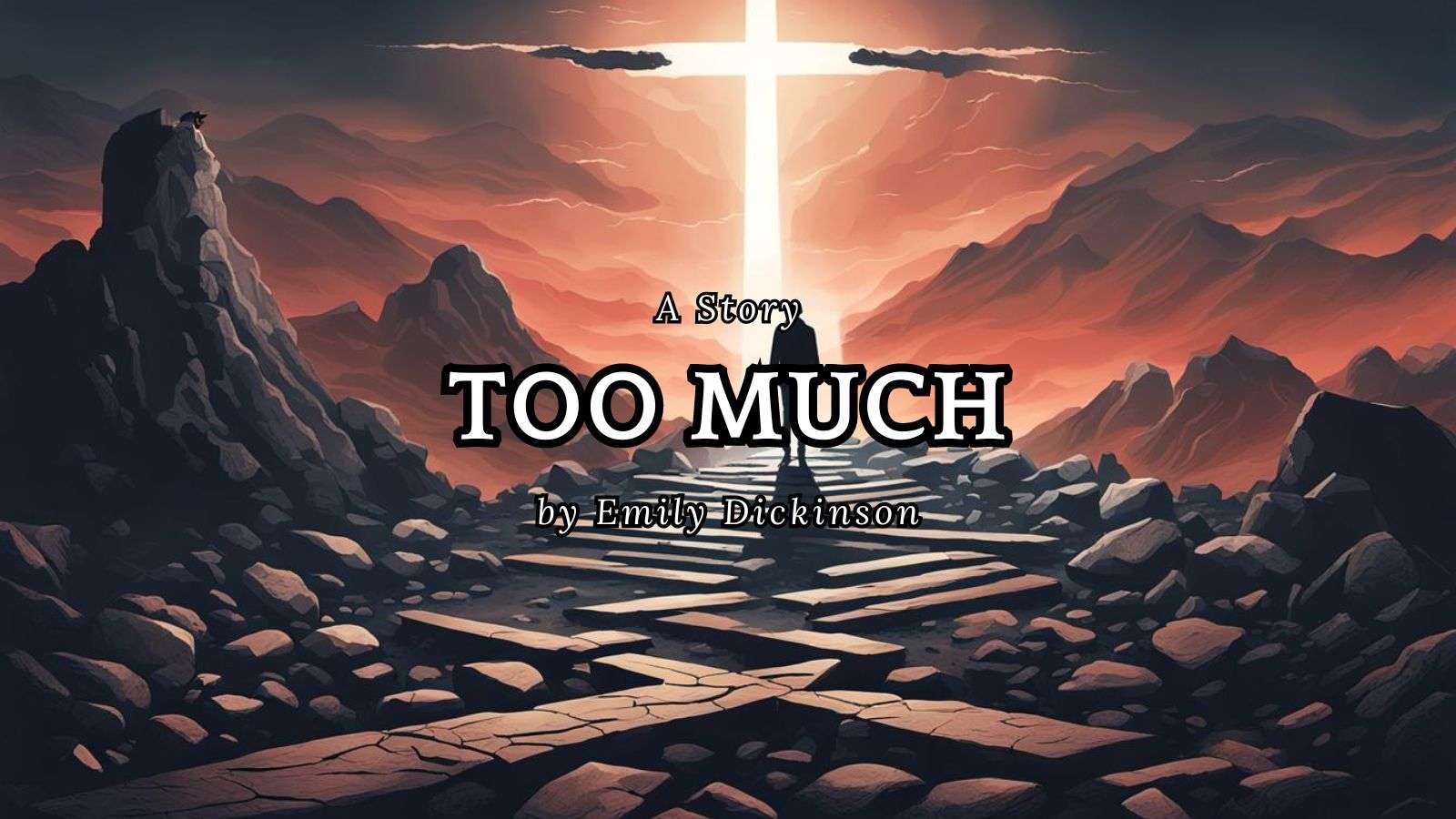TOO MUCH by Emily Dickinson

TOO MUCH
by Emily Dickinson
I should have been too glad, I see,
Too lifted for the scant degree
Of life’s penurious round;
My little circuit would have shamed
This new circumference, have blamed
The homelier time behind.
I should have been too saved, I see,
Too rescued; fear too dim to me
That I could spell the prayer
I knew so perfect yesterday, —
That scalding one, “Sabachthani,”
Recited fluent here.
Earth would have been too much, I see,
And heaven not enough for me;
I should have had the joy
Without the fear to justify, —
The palm without the Calvary;
So, Saviour, crucify.
Defeat whets victory, they say;
The reefs in old Gethsemane
Endear the shore beyond.
‘T is beggars banquets best define;
‘T is thirsting vitalizes wine, —
Faith faints to understand.
Biography
Emily Dickinson (1830-1886) was one of the most famous and influential American poets. She led a very private life, rarely leaving her hometown of Amherst, Massachusetts, where she pursued her passion for writing poems that broke conventional rules of style and theme.
Though she wrote nearly 1800 poems, less than a dozen were published during her lifetime. She was known for being reclusive and eccentric, interacting largely through letters. Her poems reflect deep insights into death, religion, nature, love and other weighty topics.
After Dickinson died, her sister discovered the enormous collection of unpublished poems and and wanted them published.. Emily Dickinson garnered recognition for her innovatively sparse, untitled form as well as her symbolic richness and bold questioning of core beliefs and doctrines. Her body of work became very influential for modernist and contemporary poets.
Today, Emily Dickinson is considered one of the towering figures of American literature. Though she never formally studied poetry and had little exposure to literary society, she is now studied globally and continues to inspire writers with the intensity and enigmatic beauty of her small yet profound poems.